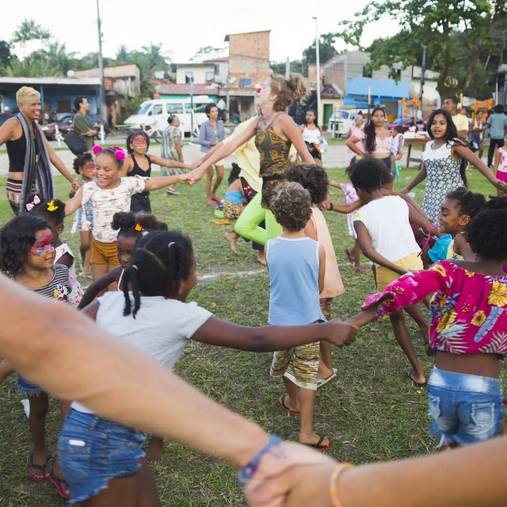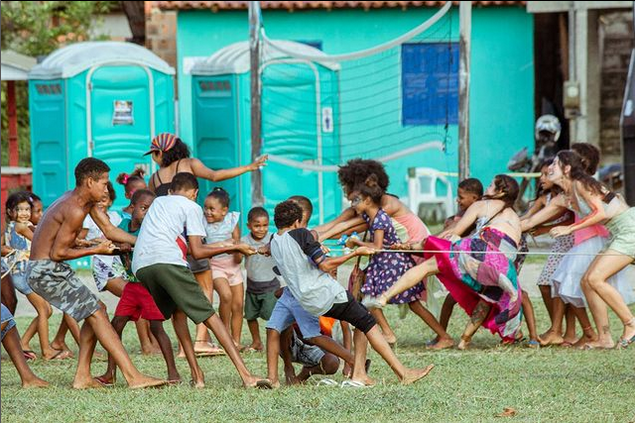Let’s play recycling?
Today, all of Brazil is celebrating a very special day, Children’s Day. Children’s Day is celebrated annually on October 12. Why is this day important? This date was created with the proposal to celebrate the rights of children and adolescents. The hope is that such a celebration will serve as a reminder to the public, raising awareness of the people “(parents in particular) of the care needed during this stage of life.” (CALENDARR, Brazil)

That said, thanks to the Associação para o Desenvolvimento da Passagem (ADEP) in collaboration with the other organizations here at Passagem, we will have a very special day to celebrate all the young people who are part of our community. The theme of “Children’s Party – Passagem 2022” will be “Let’s play recycling?” Thus, the focus of all activities will have to do with the awareness of Passagem members, especially the new generations, around the importance of taking care of the environment. The strategy of this event is to bring information, techniques and ideas to children about recycling.
Often, we set certain goals such as taking care of the environment without identifying concrete and explicit steps that need to be taken to achieve that goal. This makes progress very difficult, as such goals often address broad and abstract topics, such as caring for the environment. That’s why ADEP decided to dedicate Children’s Day to environmental awareness, namely the problem of the lack of proper disposal of solid waste. This problem is complicated because along with the tendencies of others to not properly dispose of waste, there is a lack of government initiative and support in many cases.

Like the United States, Brazil is one of the countries that generate the most waste on the planet. That said, the importance of having a sustainable and economic system that takes responsibility for the management of the country’s waste is a great need in the cases of these two countries.
Garbage itself is a universal concept, that is, the disposal of things considered useless is a practice that occurs all over the world. That said, when it comes to addressing the issue of management and attitudes towards waste that you see in different communities and cultures, the conversation is no longer so universal. On the contrary, the very approach to this subject—waste— varies greatly from one country to another. These shifts between customs around garbage can even vary on an even more local scale, for example at the community level. These differences include any laws and programs, or lack thereof, that are used for waste management (collection, disposal and recycling). These approaches tend to depend as much on the values present in the local cultures with respect to the preservation of the environment as on the policies present in their respective countries.
by Lindsey
References:
CALENDAR, Brazil. “Children’s Day: October 12th.” Calendarr, https://www.calendarr.com/brasil/dia-das-criancas/.
Images: Instagram, @saraudapassagem @josectreh
-
Interning with ETIV’s new IT Program
My experience combining my interest in data science and cultural immersion as an intern at ETIV.
-
Environmental Education at ETIV
How ETIV environmental education program is helping students connect with nature and learn how to protect their environment.
-
A Rainy Day in Itacaré
An ETIV volunteer’s routine and reflections on a rainy day in Itacaré
-
My Volunteer Routine
My daily routine as a volunteer at ETIV
-
Beach Camping around Itacaré
Beach Camping around Itacaré There’s nothing quite like sleeping under%rarebiz-readmore%
-
The Lost Cachoeira: Part 1
The Lost Cachoeira: Part 1 A little throwback to 2019,%rarebiz-readmore%
